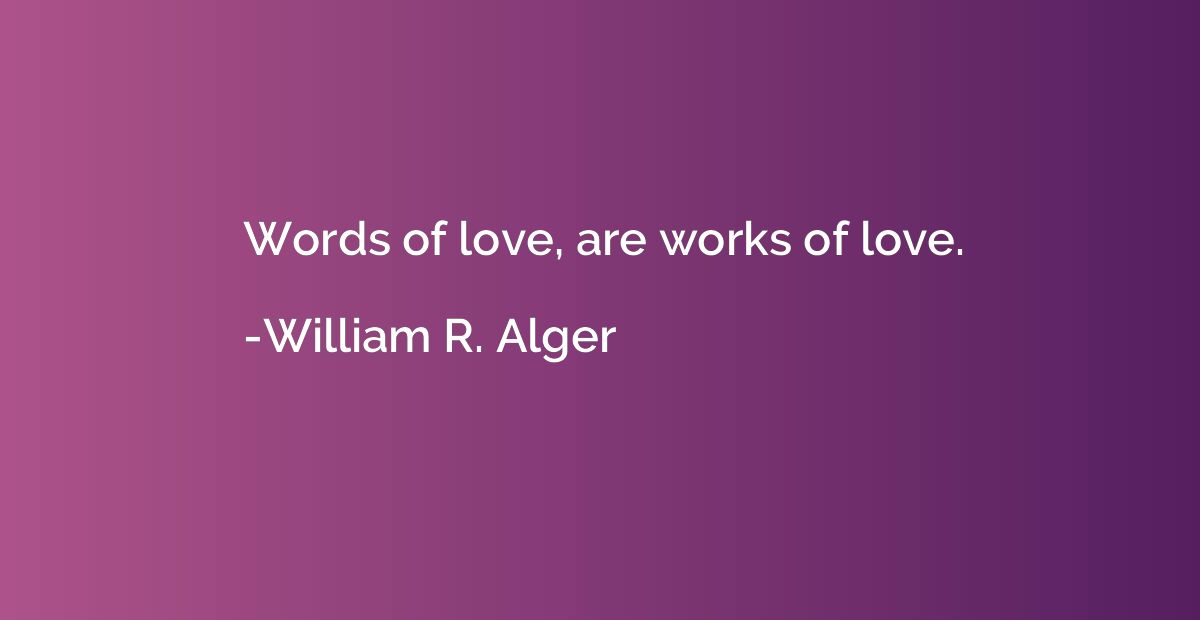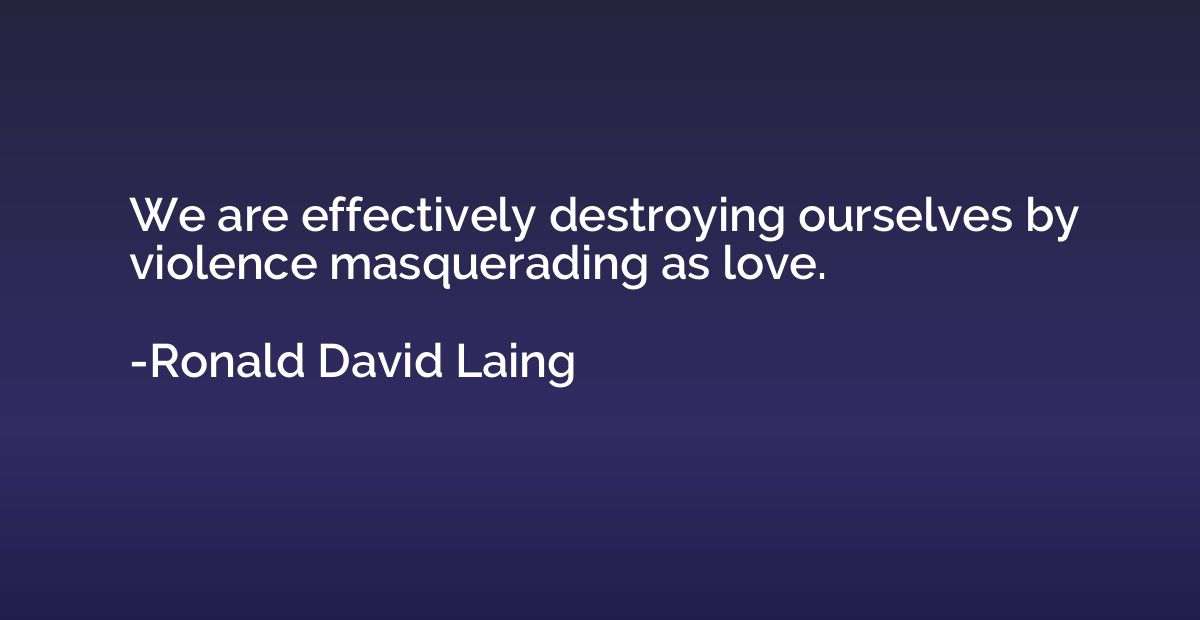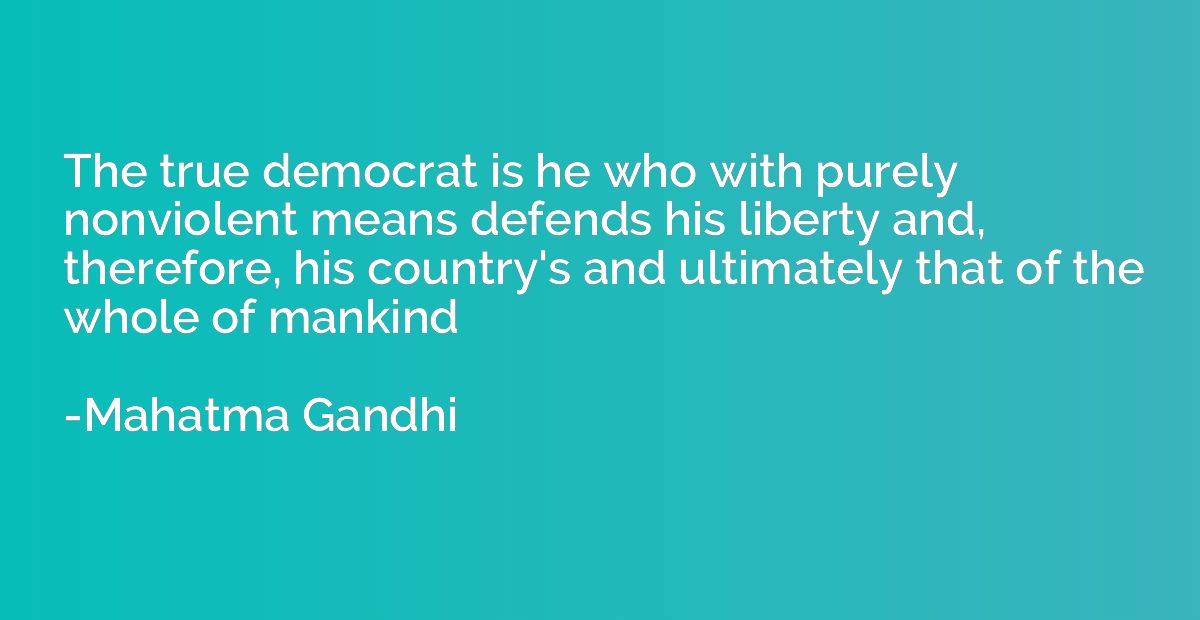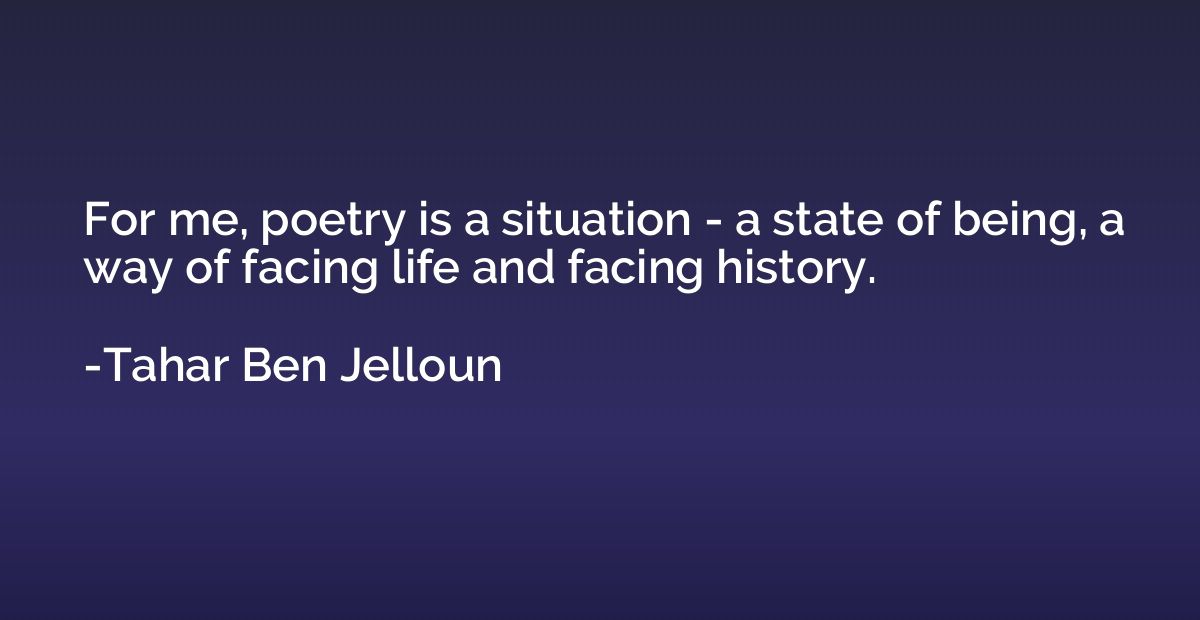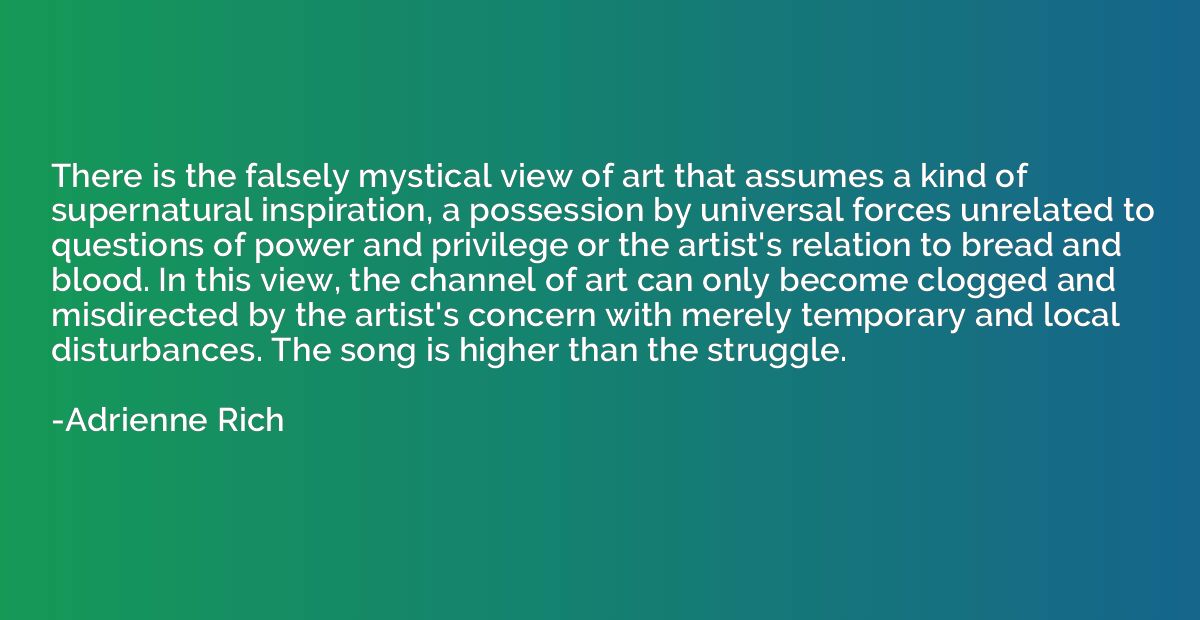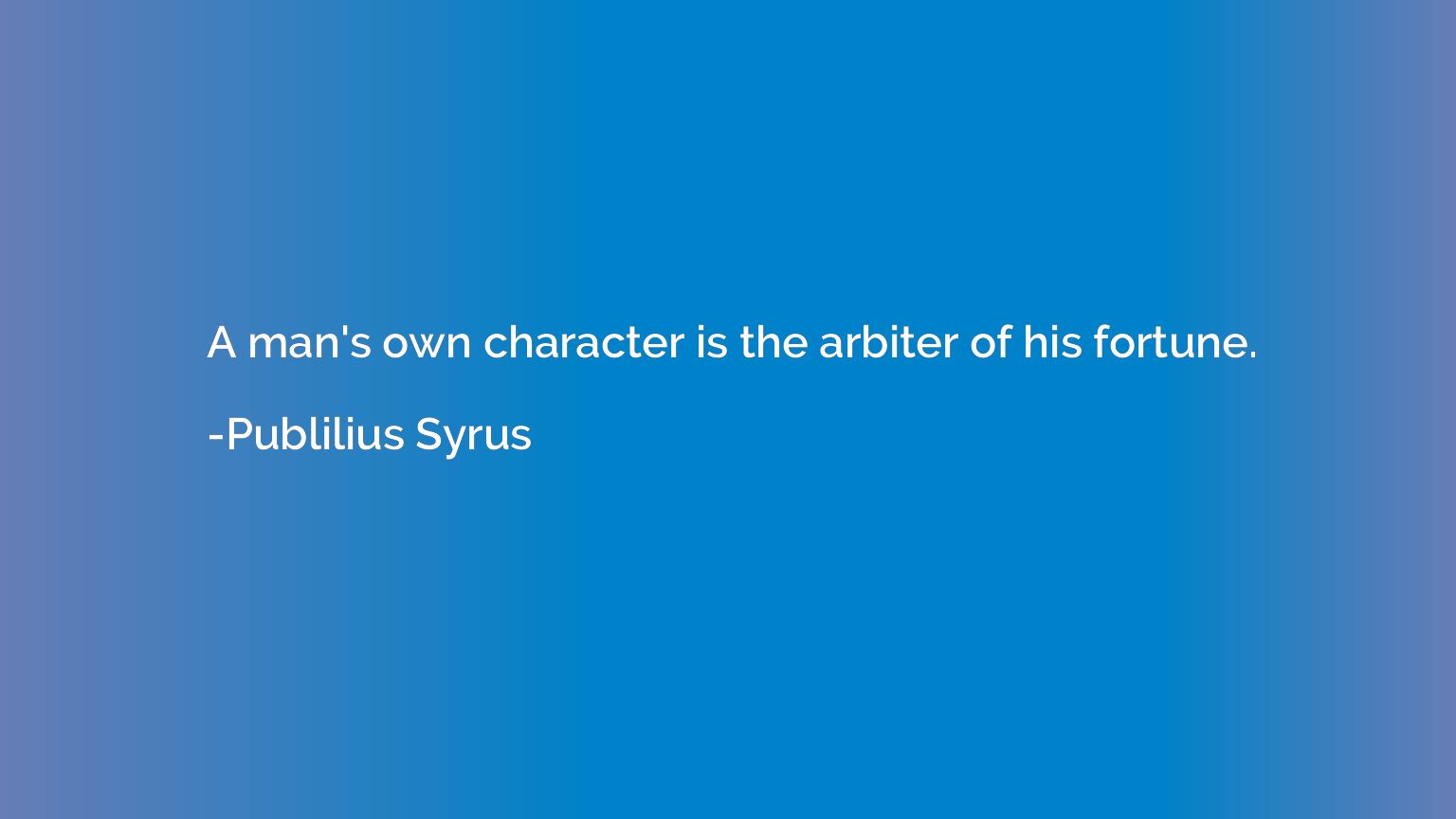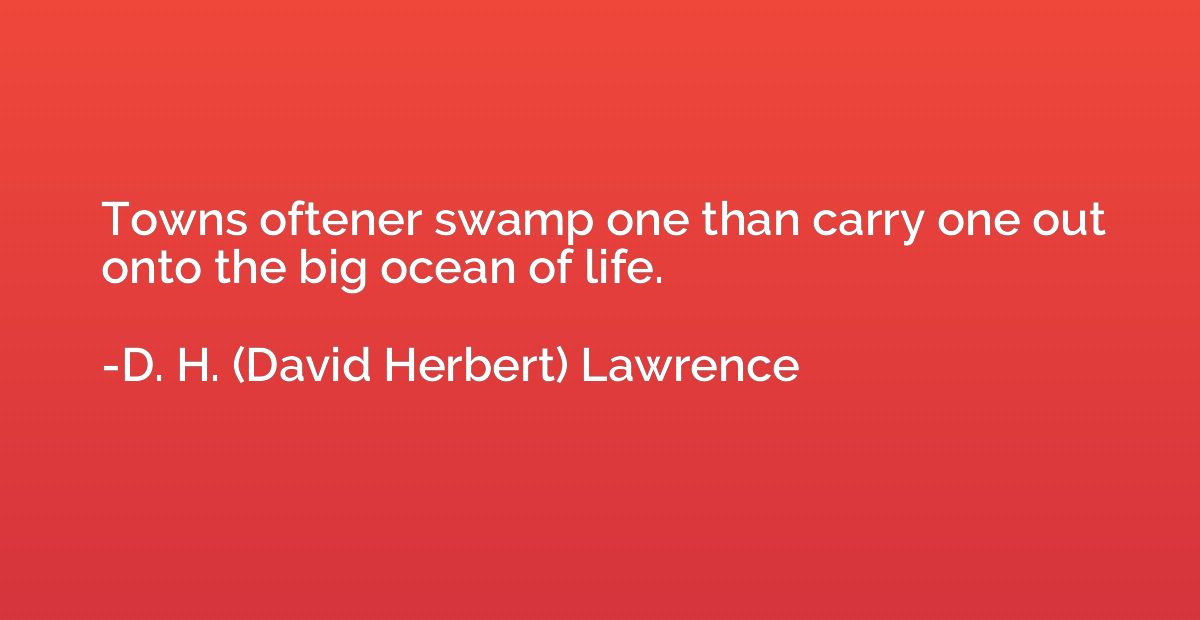Quote by Martin Buber, I and Thou, 1923
Some would deny any legitimate use of the word God because it has been misused so much. Certainly it is the most burdened of all human words. Precisely for that reason it is the most imperishable and unavoidable. And how much weight has all erroneous talk about God's nature and works (although there never has been nor can be any such talk that is not erroneous) compared with the one truth that all men who have addressed God really meant him? For whoever pronounces the word God and really means Thou, addresses, no matter what his delusion, the true Thou of his life that cannot be restricted by any other and to whom he stands in a relationship that includes all others.
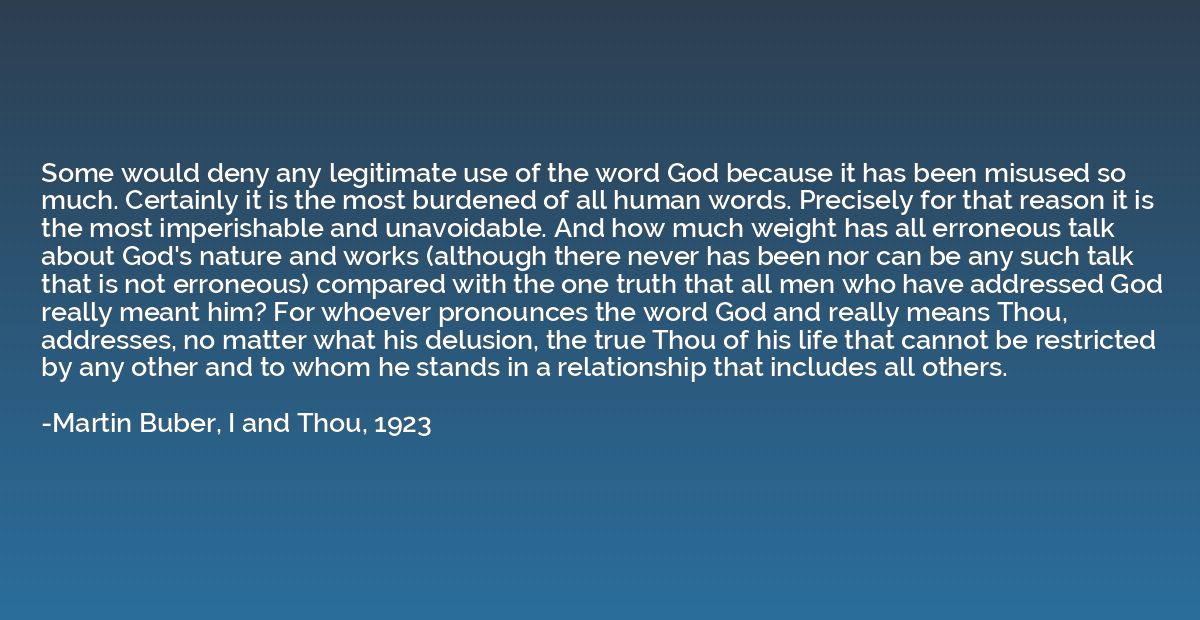
Summary
The quote suggests that although the word "God" has been misused and has had various interpretations, it remains a powerful and essential word. Despite the countless erroneous discussions about God's nature, the quote highlights that whenever someone utters the word "God" and genuinely means "Thou," they are addressing the true essence that encompasses all relationships. In this context, "Thou" represents a personal and intimate connection with a higher power that transcends any limitations or misconceptions associated with the word "God."



